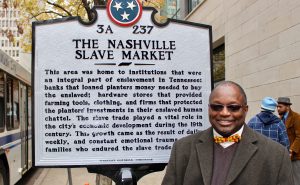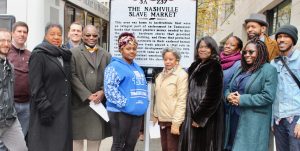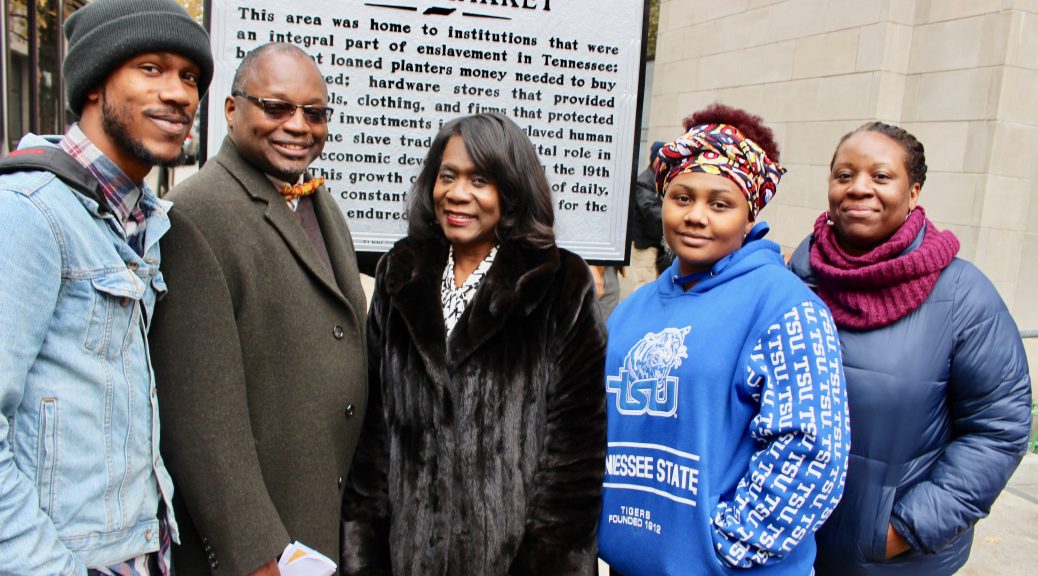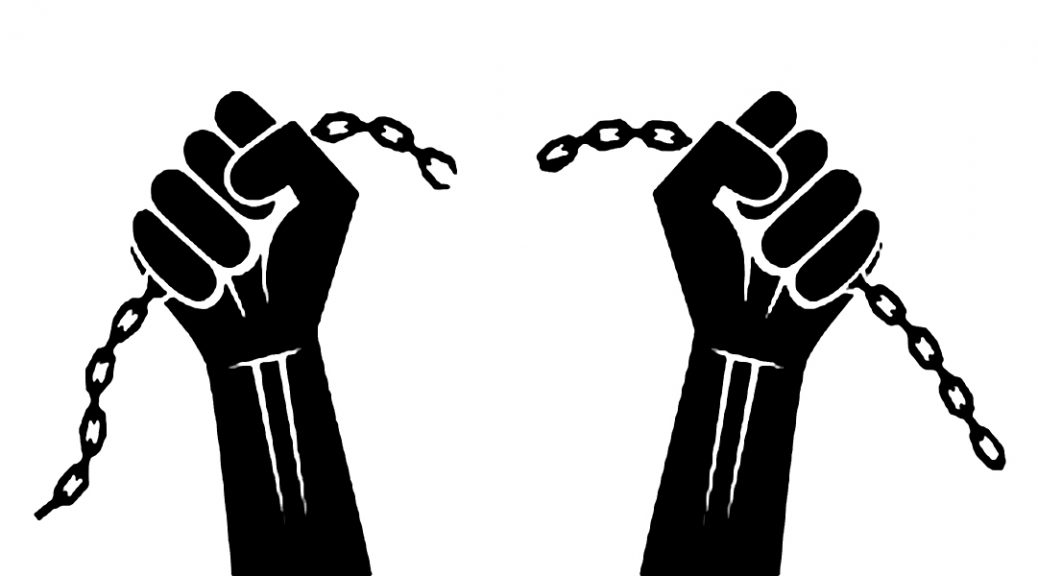NASHVILLE, Tenn. (TSU News Service) – A historical marker that recognizes victims of the second largest slave port in Tennessee was unveiled downtown Friday thanks to the efforts of a Tennessee State University professor and his students.

The marker is located at the corner of 4th Avenue North and Charlotte Avenue.
Preceding the Civil War, the space, which stretched to the city’s Public Square, was the center of slave trade in Nashville.
TSU President Glenda Glover joined state and local officials, historians and members of the community at the unveiling ceremony.
“We gather to honor the memory of hundreds of slaves who helped to build this city and state, laying the foundation for what we have become, one of the nation’s fastest growing metropolitan areas,” said Glover.
Dr. Learotha Williams, an associate professor of history at TSU who spearheaded the erection of the marker, echoed her sentiment when he talked about the slaves and what they endured.
“We acknowledge your pain, we recognize your strength, and we honor your sacrifice,” said Williams.
He said the idea for the marker stemmed from a discussion in one of his classes about the history of Nashville’s slave market, and the trauma inflicted upon countless men, women and children when they were torn from their loved ones.
Williams said his students wanted to know why there wasn’t some type of memorial for the slaves. One student suggested to Williams: “Why don’t you write up a proposal; you can be the one to get it done.”
And so he did, with the help of his students and members of the community. The Tennessee Historical Commission approved the marker in June.

Patrick McIntyre, executive director and state historic preservation officer for the Tennessee Historical Commission, attended Friday’s ceremony.
“This is the most significant marker to be erected during my years as director,” he said. “It’s a very serious and painful reminder of an everyday fact of life that existed in Nashville.”
The slave traders that lined the thoroughfare provided prospective buyers reliable access to enslaved blacks whom they bought, sold, or traded for their own use or resale in other areas of the Deep South.
“Nashville was the second largest slave port in the state,” said Williams. “So, if you’re looking at a black person from here that has roots in Tennessee, chances are their ancestors came in through that space.”
TSU history student Meshach Adams said the marker unveiling was a proud moment.
“It means a lot, having this recognition of what happened here, especially in remembrance of our ancestors,” said Adams, who is a senior in one of Williams’s classes. “It’s a beautiful moment.”
TSU senior Shayldeon Brownlee, who is also a student of Williams, said the marker will hopefully cause future generations to reflect on what happened there.
“Some people want to forget, especially in this day and age,” said Brownlee. “But it shouldn’t be overlooked. It’s a part of history, it’s a part of us.”
Chakita Patterson is the founder of United Street Tours, which provides African-American history and cultural walking tours in downtown Nashville. She plans to make the marker part of her tour.
“This is so important because a lot of the missing history and the hidden history in Nashville is now being uncovered,” said Patterson. “A lot of people don’t know how significant black history, and black culture is here.”
Dr. Bobby Lovett is a national historian and former TSU history professor. He said African-Americans arrived at Fort Nashborough (a forerunner to the settlement that would become the city of Nashville) in December 1779 with the first European American settlers. Enslaved and free blacks comprised about 26 percent of Nashville’s population by 1860. The sale of slaves ended once the Union occupied Nashville in 1862.
“A historical marker is appropriate for this sacred part of Nashville’s history, which reminds us that lessons of our past can help with understandings of the present, and guide us toward making better decisions in the future,” said Lovett.
To learn about Dr. Learotha Williams’s other endeavors, visit http://www.tnstate.edu/nnhp/index.aspx
Department of Media Relations
Tennessee State University
3500 John Merritt Boulevard
Nashville, Tennessee 37209
615.963.5331
About Tennessee State University
With more than 7,000 students, Tennessee State University is Nashville’s only public university, and is a comprehensive, urban, co-educational, land-grant university offering 38 bachelor’s degree programs, 24 master’s degree programs and seven doctoral degrees. TSU has earned a top 20 ranking for Historically Black Colleges and Universities according to U.S. News and World Report, and rated as one of the top universities in the country by Washington Monthly for social mobility, research and community service. Founded in 1912, Tennessee State University celebrated 100 years in Nashville during 2012. Visit the University online at tnstate.edu.





